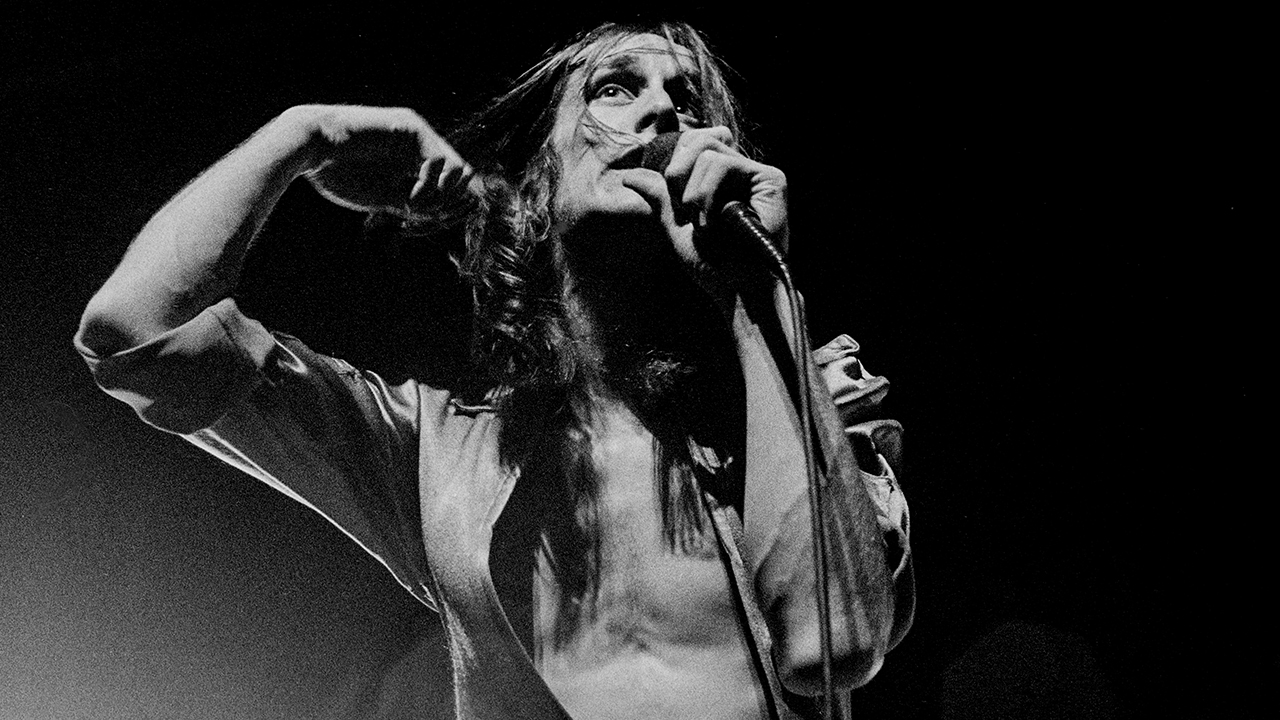The 50 best rock albums of the 2010s
As the 2010s reach their end, we present the 50 best rock albums the decade had to offer, as voted for by you guys
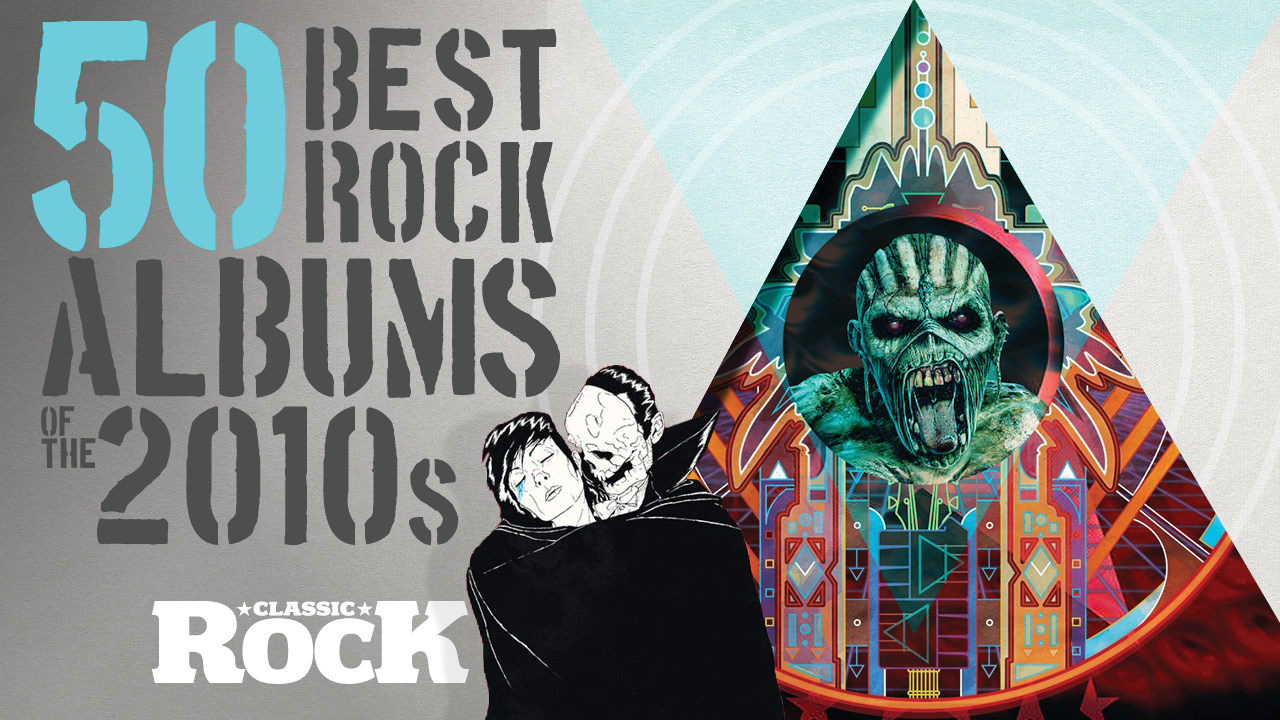
Select the newsletters you’d like to receive. Then, add your email to sign up.
You are now subscribed
Your newsletter sign-up was successful
Want to add more newsletters?

Every Friday
Louder
Louder’s weekly newsletter is jam-packed with the team’s personal highlights from the last seven days, including features, breaking news, reviews and tons of juicy exclusives from the world of alternative music.

Every Friday
Classic Rock
The Classic Rock newsletter is an essential read for the discerning rock fan. Every week we bring you the news, reviews and the very best features and interviews from our extensive archive. Written by rock fans for rock fans.

Every Friday
Metal Hammer
For the last four decades Metal Hammer has been the world’s greatest metal magazine. Created by metalheads for metalheads, ‘Hammer takes you behind the scenes, closer to the action, and nearer to the bands that you love the most.

Every Friday
Prog
The Prog newsletter brings you the very best of Prog Magazine and our website, every Friday. We'll deliver you the very latest news from the Prog universe, informative features and archive material from Prog’s impressive vault.
Somewhere around the middle of the decade, Gene Simmons famously declared to all who would listen that "rock'n'roll is finally dead". Pointing the finger at file-sharing for what he called the "murder" of the genre, he railed against modern technology and what he perceived as the decade's lack of talent, decrying the absence of a "next Bob Dylan" in modern music's landscape.
But pay no attention to uncle Gene. Firstly, he's been saying this sort of thing since 1993, and we all know how the 90s panned out in terms of rock's legacy. Just because Kiss failed to make a great record this decade doesn't mean everyone else did. Secondly, a quick scan of the albums below will show you that rock music's been plenty busy over the last 10 years.
Rock'n'roll mainstays AC/DC released Rock Or Bust, an album we felt "placed its faith at the feet of rock‘n’roll, both as a restorative force and also as a vaccine against all ills" when it was released in 2014. Fellow veterans ZZ Top and Rush joined them in releasing stone-cold belters at various points throughout the decade.
But – as we've discussed in depth elsewhere – there's been plenty of new blood making their mark on the decade, too. The Struts cemented their profile with two swaggering albums – 2014's Everybody Wants and 2018's Young & Dangerous – their success helped in no small part by the impossible charisma of vocalist Luke Spiller. Who says we don't have any rock stars anymore? Idles, Fantastic Negrito and Royal Blood all furnished us with future classics.
When picking the decade's finest, we knew there was only one place to turn – and that was you guys. From a long-list of hundreds of albums, you lot selected your favourites – and added plenty of your own to the running, too.
So, here we present the best 50 rock albums of the decade – as voted for by you.

50. Roger Waters - Is This The Life We Really Want? (2017)
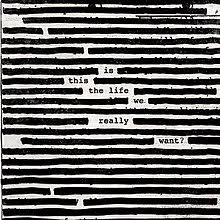
It’s ironic that the former major‑domo of the quintessential stoner band should in recent years have recast himself as rock’s last angry man. We knew from their 70s output, from Dark Side Of The Moon to Animals and The Wall, that Pink Floyd specialised in a sort of melodic mordancy or ambient acrimony. And yet their rails against the system seemed designed to erase or raze your consciousness. With Is This The Life We Really Want?, the Floyd’s main writer succeeded in raising it.
Sign up below to get the latest from Classic Rock, plus exclusive special offers, direct to your inbox!
He did it with his politicised concert spectaculars – The Wall Live, which made him the highest-grossing solo artist of all time, 2016’s Desert Trip performances, an Us + Them tour, which he described as “an exercise in resistance, not just to Trump, but to all the despots, dictators, thieves and ne’er-do-wells all over the world”. And then there was his fourth solo album (not counting 2005’s three-part opera, Ça Ira).
The title may have struck a note of reflection, even resignation, but what you got on Roger Waters’ first long-player since 1992’s Amused To Death was rancour, even rage. It was a protest album, a series of howls of despair at a world that allows all kinds of injustice, from extremes of wealth and poverty (Déjà Vu) to the arrival of a ‘nincompoop’ (as he calls him on the title track) in the White House.
All credit to Waters: he could easily have coasted on the nostalgia circuit in what is effectively the twilight of his career. Instead, he chose to go less than gently, despite the risk to his popularity. Still, for all the album's solemnity, Waters was clearly in his element, even if his Indian summer might still coincide with our nuclear winter.
These are serious times, and you either respond with heads-down party music or with something grave like this. Is This The Life We Really Want? is sententious, tendentious, portentous and pompous – and those are good things about it.
Our score: 7/10
49. The Struts - Everybody Wants (2014)
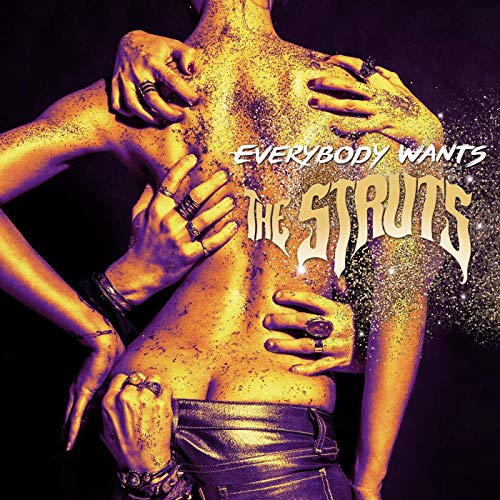
What a year 2014 was, eh? Ice bucket challenges. True Detective. Selfie-mania. Kim Kardashian’s arse (aka Kanye West). Sharknado 2. Blimey, it only seems like yesterday.
It also happened to be the year that the Struts' debut album was first released, only to promptly vanish into thin air like a plane off the coast of Indonesia – the cruellest of fates given its outrageous flamboyance, untouchable swagger and unadulterated musical genius.
Fast-forward two years and The Struts – four preening 20-something peacocks from the least glamorous town in the UK, a place known to its inhabitants as ‘Derby’ – were fished out of the dumpster, dusted off and thrust back into the glare of the spotlight, confidently brandishing a souped-up version of said debut.
Everybody Wants was an unashamed old school rock’n’roll album, which, given mainstream culture’s decade-long disdain for guitars, made The Struts either the bravest or stupidest young band out there. Either way, you’ve gotta hand it to ’em for not giving the slightest of fucks.
Where Everybody Wants truly romped home was on the sheer tuneage front. Unlike most of their young contemporaries, they proved themselves familiar with the lost art of writing a chorus. There were at least six potential hit singles on the album, which at the time was half-a-dozen more than most other rock bands of their fresh vintage. And they were smart enough to wrap it up in a slick 21st century production; this was no dusty museum piece or cheap facsimile of other bands’ past glories.
Of course, there was no guarantee of anything going the way it should and history might well have repeated itself: The Struts could easily have wound up working the fryer in the Derby branch of Chicken Cottage. But scroll a little further down this page, and you'll soon see that wasn't quite how it panned out.
Our score: 9/10
48. Rolling Stones - Blue & Lonesome (2016)
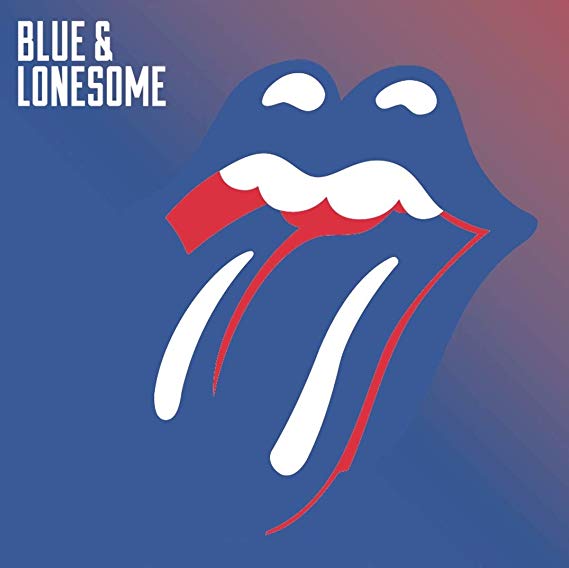
When it was announced that the Rolling Stones were to release an album of blues covers, no one voiced a word of disappointment. For while Stones fans invariably welcome brand new material from the pens of Messrs Jagger and Richards, it’s when they've returned to the source that they've truly set pulses racing. No other band executes the blues quite like the Stones. They invariably play with reverential respect to the spirit and feel of the original recordings, but bring much more to the table.
The Stones were blues evangelists. Their eponymous debut introduced future standards by Willie Dixon and Jimmy Reed into the mainstream yet, while remaining true to the originals, they infused each recording with a raw vitality and licentious swagger that was quintessentially Stones.
While all that remained of the Stones’ ’64 line-up on this album was the central core of Mick Jagger, Keith Richards and Charlie Watts, they had since accrued 156 more years experience in providing blues material with their unmistakable signature spin. Where once was pianist Ian Stewart was Chuck Leavell; where once taciturn bassist Bill Wyman, Darryl Jones.
The Rolling Stones on show here, in spite of all the fix-in-the-mix temptations today’s digital age has to offer, retained a skill set far beyond most contemporary artists. They proved themselves just as, if not more, capable of recording completely live in the studio as they were when they first entered Regent Sound Studios in ’64. And from the first note of Blue & Lonesome that’s exactly what you heard: a band in exceptional form, captured raw, vital, alive and – above all – kicking. Kicking harder than you’d expect of a band in their proud, preening, priapic prime. Just as hard as any band extant and certainly as hard as the Stones have ever kicked before.
It was blindingly apparent from the off that Blue & Lonesome was Mick Jagger’s album. Vocally bang on the money, he roared through Howlin’ Wolf’s Commit A Crime, soared above Walter’s Blue And Lonesome like a man unhinged by the injudicious nature of fate, before Magic Sam’s sedately paced All Of Your Love coaxed a hackle-raising performance that was vintage Jagger in excelsis.
Blue & Lonesome captured the Rolling Stones – The Greatest Urban Blues Band In The World – in their element, doing what they do best. You’ll only wish they did it more.
Our score: 9/10
47. Babymetal - Metal Resistance (2016)
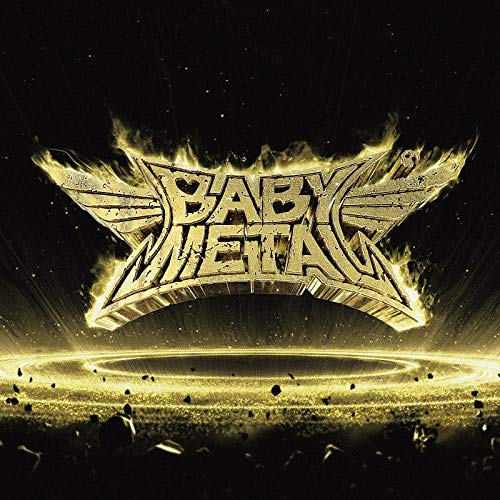
Are Babymetal manufactured corporate pop robots? Or the most refreshing and exciting thing to happen to heavy music this millennium? Yes and yes.
Japan’s ‘kawaii metal’ teen sensations divide opinion, but their second album proved that their crack musical team knew exactly what they were doing. Built on a massive scale, Metal Resistance was a supercharged monster of sound and fury, tearing through rock genres and ideas like Godzilla rampaging across Tokyo.
The DragonForce collaboration Road To Resistance set the maximalist tone with its Wagnerian power-metal dynamics, candy-coated vocals and epic Broadway show tune chorus. Magnificent.
From there, Babymetal pulled in all directions at once, layering cutesy electro-pop on top of nu metal stomp, symphonic orchestration, weapons-grade shredding, trip-hop, dubstep and Brian May-sized guitar solos.
There were swerves and surprises. The syrupy power ballad No Rain, No Rainbow threatened to erupt into boiling pustules of molten thrash, but never did. And Tale Of The Destinies was a boldly experimental mash-up of jazz-metal, avant-punk gruntcore and boogie-woogie piano. Maximum respect.
Hard rock purists might not have been keen, but perhaps Babymetal’s multi-dimensional universe contained way more than was dreamt of in their narrow philosophy.
Sometimes overwhelming, mostly exhilarating and occasionally jaw-dropping, when we first heard Metal Resistance, we eulogised that it may well be the greatest album ever made. Almost four years on, we reckon we were on to something.
Our score: 11/10 (yes, really.)
46. Royal Thunder - Wick (2017)
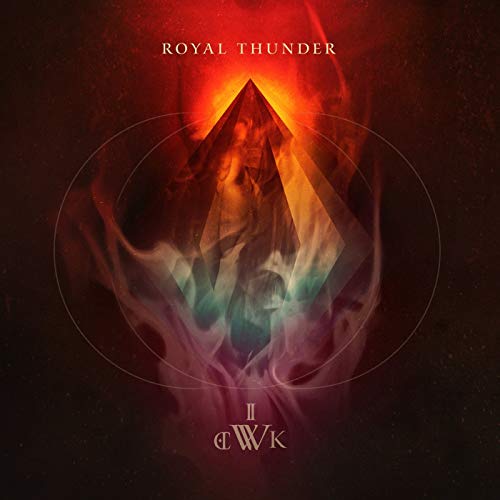
They met in a Christian cult, things got heavy, they escaped and formed a band, got married, then divorced… and after all that Royal Thunder’s founding duo (vocalist/bassist) Mlny Parsonz and (guitarist) Josh Weaver remained friends, still making music. You really couldn’t make it up.
Perhaps you need this kind of weighty life experience to make the kind of intense rock that Royal Thunder manage so well. That powerfully moving, almost unsettling racket that’s at once painful as hell and extremely beautiful.
They honed this recipe over two first-class LPs (One Day from Crooked Doors still makes us well up every time), but WICK was the peak of their career thus far – a rich, well-paced hybrid of heavy Led Zeppelin hoodoo, Fleetwood Mac romance (but harder and darker) and raw emotion.
Sumptuous but gritty, intensely thoughtful but relatable, it was the sound of aggression (The Sinking Chair), psychedelic intrigue (April Showers), heartbreak (Plans) and determination (Anchor), channelled through one of modern rock’s most outstanding voices.
When Mlny Parsonz sang “you ripped out my heart” you didn’t question it, and Weaver’s hard, melodious guitar accentuated her cries to powerful effect. And amid the fierce concentration and finessed chops there was still something appealingly wild about it all.
If you wanted the real rock deal, circa 2017, this was it.
Our score: 8/10
45. The Struts - Young And Dangerous (2018)
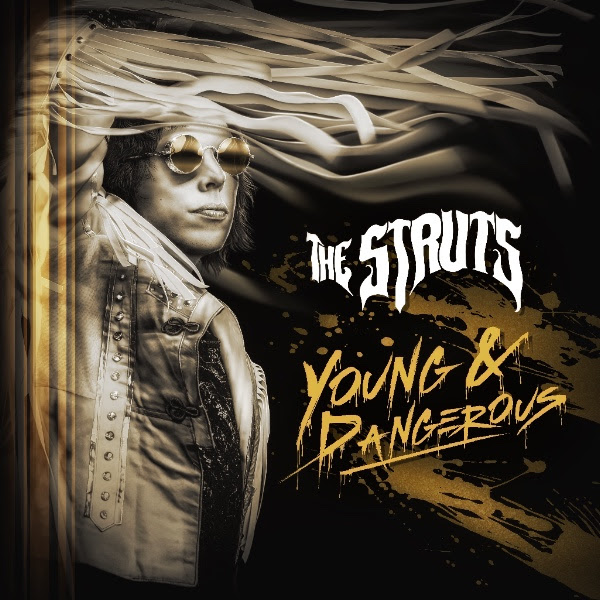
As already mentioned further up the page, The Struts should, by rights, already be the global stars they imagine they are.
After the (eventual) success of everybody wants, the band relocated to LA and spent three years in self-imposed exile, learning their chops on extensive tours with rock heavyweights – The Who, Guns N’ Roses and Foo Fighters. Such a steep learning curve wasn’t wasted on them, because their second album was stadium sized in every respect.
From the opening bars of Body Talks it was clear instantly that this was a quantum leap forward from their 2014 debut. The sleaziest of guitar riffs snaked its way around an irresistible Lust For Life-style groove, over which Spiller drawled: ‘You can pretend you don’t want it!’ like Iggy on Viagra stumbling into a #MeToo seminar. It was both brazen and brilliant, and alerted you to the fact that this was a band who really meant business.
Recorded in LA, Nashville, Miami, Jersey and Bournemouth, with producers Butch Walker (Weezer, Panic! At the Disco) and Sam Hollander (Neon Trees), Young & Dangerous sounded fantastic, its sledgehammer pop crunch delivered with analogue warmth designed to hit a deep vein of joy in any fan of rock’s golden age (Queen, Thin Lizzy, Faces et al).
Not that The Struts had retreated down a retro wormhole. She’s In Love With A Camera and Who Am I were bubblegum classics which charted Spiller’s frustrations with selfie culture and identity politics, while the anthemic Freak Like Me played on rock’s new-found status as cultural underdog.
In an age where hip-hop and pop have become the Instagram generation’s soundtrack of choice, The Struts’ refusal to toe the line became more thrilling with every knowing nod to rock’s sepia-tinted past, from the Gimme Shelter intro to Primadonna Like Me to the Baba O’Rileyesque coda of Ashes (Part 2).
While comparisons to The Darkness were unavoidable (Permission To Land is the obvious sonic touchstone), the sheer joie de vivre on Young & Dangerous ensured that it never sounded second-hand.
Like all great albums, it reminded you of everything that made you fall in love with this crazy thing called rock’n’roll in the first place.
Our score: 9/10
44. Ozzy Osbourne - Scream (2010)
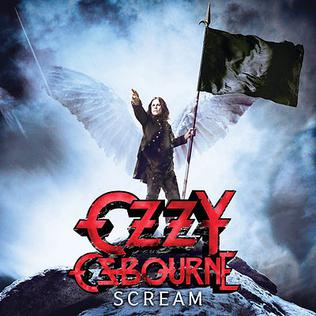
The turn of the decade was a strange time for the Prince of Darkness. From legal disputes with the other three original members of Black Sabbath over ownership of the name, to him appearing on TV adverts for World Of Warcraft, John Michael Osbourne’s career had been anchored only by the certainty that, inevitably, there would be another Ozzy record to follow 2006’s lacklustre and critically overlooked Black Rain.
News of Ozzy Osbourne’s upcoming tenth album seemed more like, oh, another release. But complacency was swiftly replaced by sweaty climax when the news emerged dramatically that his ever-faithful co-frontman Zakk Wylde would not be
appearing on the record, and that a partnership that began with 1988’s thunderous No Rest For The Wicked had come to an end. Was it that the long-time heir to the god-like Randy Rhoads’ crown by way of Jake E Lee had fallen out with heavy metal’s spiritual forefather? It was soon revealed that not even Zakk was sure whether he’d been fired. “Man up and give me a call,” he exclaimed in a radio interview.
In what could only be described as an awkward shuffling of the feet, Ozzy revealed he had indeed found another guitarist, and subsequent interviews with the singer provoked a fear that Zakk’s trademark squeals and god-like solos had brought too much Black Label to the Osbourne mix.
But who would now sit at Ozzy’s right hand and continue the post-Sabbath travails that began with 1980’s landmark Blizzard Of Ozz? Speculation that Marilyn Manson sidekick/solo virtuoso John 5 would occupy that position were soon dispelled by a milestone interview with Classic Rock. “I haven’t fallen out with Zakk, but Zakk’s got his own band,” Ozzy explained. “I felt like my stuff was beginning to sound like Black Label Society. I just felt like I wanted a change, you know? I’ve got a guy from Greece coming in.”
“Fair enough,” said the metal world. “Hang on... did Ozzy just say Greece? ”
Yes he did. Enter Kostas Karamitroudis, aka Gus G, long-time fret-master for Greek power overlords Firewind and possibly the unlikeliest of candidates. For many, the only possible response to this tantalising news were the letters WTF. Nightmarish visions of warp-speed solos and Dragonforce-meets-Diary Of A Madman antics danced in many a juror’s head. Because, really, Ozzy records have always been defined by the guitarists playing on them. What we now know is that they were wrong – very wrong.
The case for Ozzy’s defence began with a blazing statement of intent – a six-minute belter that kicked off with a Moorish-inflected frenzy that transformed into a doomtastic riff and Ozzy making Kid Rock-esque pronouncements like: ‘I’m a dealer, I’m a rock star,’ before the mid-tempo swagger returned to a feverish solo by Gus G and a most un-power-metal sexiness that no one saw coming. It was these serpentine transformations – labyrinthine journeys through myriad styles and what sometimes seems like simply showing off – that made Scream such a juicy listen.
Sizzling with energy and renewed vitality, this was a record that long-time Ozzy fans could wear on their shirts. This was Ozzy as we'd never heard him before. And it was about fucking time.
Our score: 8/10
43. David Bowie - The Next Day (2013)
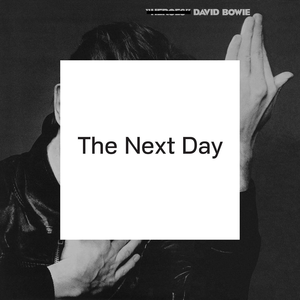
After a decade of studio silence, when single Where Are We Now? (complete with extraordinary vid) suddenly dropped seemingly from nowhere, confirming that this album – constructed over a couple of years behind a wall of absolute secrecy by David Bowie and his longest-serving collaborator, Tony Visconti – was primed and waiting in the wings, the buzz was deafening.
Here was a somewhat battered legend – whose last few albums had been occasionally intriguing but only intermittently lit by any flashes of his old brilliance, a Great Rock Futurist responsible for so many Great Leaps Forward – who was now looking back into his own past; a seemingly-ageless Great Male Beauty appearing in his video looking unashamedly… old. Those presumed by the meejah to be somehow in the know were repeatedly asked: is Bowie dying? Well, he answered that particular question on the curtain-raising title track: ‘Here I am, not quite dying’. A line which grew in poignancy following Blackstar and his death in 2016 – but more on that later.
At 66, Bowie had sensibly given a major swerve to any notion of being down wid da yooth. Instead he made an unmistakable David Bowie album which took the listener through a gallery of his favourite licks, riffs, grooves, mannerisms and stylistic devices from his own oeuvre, with its focus located loosely and non-exclusively in the period between 1977’s Heroes and 1980’s Scary Monsters. Thus various tracks were based on the Bowie Stomp Beat (think Fashion, Boys Keep Swinging), the neo-50s chord changes of Five Years or Drive-In Saturday, the reggae-funk bump of Ashes To Ashes or Under Pressure.
The guitars (mostly played by Gerry Leonard, David Torn and Slick) referenced hallowed Bowie guitar luminaries like Robert Fripp and of course the sainted and much-missed Mick Ronson, and you could hear drum intros echoing Five Years or Iggy’s Lust For Life. In fact this album was probably the greatest spot-the-nick exercise since Oasis’s Be Here Now, the difference being that Bowie was mostly picking his own artistic pockets rather than other people’s.
Best bits? Hard to select from an album so generously stuffed with good things. But seek out Dirty Boys (heavy thumb on the ‘dark and sinister’ button), with its hard, Iggoid vocal, tremolo guitar, honking baritone sax and evocations of childhood menace (‘I will buy a feather hat/I will steal a cricket bat… when the sun goes down, the die is cast’) or the searing anti-war lyric of I’d Rather Be High (‘I’d rather be dead or out of my head than training these guns on those men in the sand’).
Bottom line: this was a vintage Bowie album for vintage Bowie people, of whom there were – and are – many; a reflection on his own journey and also on ours. It was a far, far better Bowie album than we had any right to expect – especially considering that we weren’t expecting another Bowie album in the first place.
Our score: 8/10
42. ZZ Top - La Futura (2012)
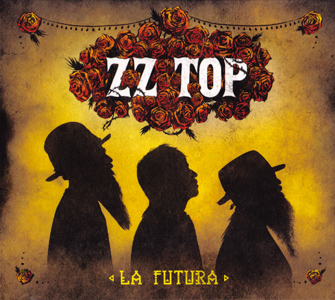
After nine years of nuthin’ – and considerably more since their MTV-driven hit single hey-day – the news that Rick Rubin was producing ZZ Top's 2012 comeback was cause for celebration. Famed for back- to-basics salvage jobs on the likes of Johnny Cash, Metallica and others, Rubin’s method and mores were clear: no messin’, no fuss, just stripped-down music that allows the artist’s original quality to show through.
What a surprise it was, then, when we heard the first fruits of their labours: single and album opener I Gotsta Get Paid, a bruising cover of an obscure Texan hip-hop track turned into a monolithic statement of intent.
Here was 21st century ZZ Top, still taking their cue from black underground music and turning it into something unique. It was the blues chopped and screwed, a perfect blend of hip-hop rhythms and rock crunch that was surely one of the songs of 2012.
If the rest of La Futura wasn’t as radical, it was no less enjoyable, from the arch slow-blues of Over You to Chartreuse’s cheeky resurrection of the riff from Tush and Consumption’s throbbing sci-fi blues. A cut’n’shut of Sharp Dressed Man and Spirit In The Sky, its lyrics (‘Have another bottle/ Make me who I wanna be’) hinted at the dark side to ZZ’s party-hearty public image.
Our score: 7/10
41. Def Leppard - Def Leppard (2015)
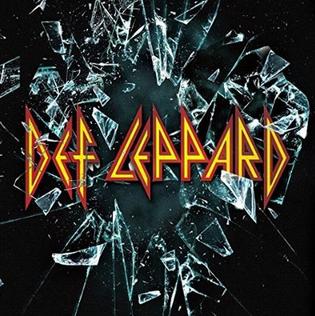
Joe Elliott seems to have spent most of the past 30 years grumbling about how Def Leppard aren’t given the respect they’re due. He has a point – you don’t become the 27th biggest-selling British band of all time without doing something right. But credibility in the eyes of the cultural gatekeepers still evades them.
In truth, he should get over it. For one thing, there are a lot worse places to be than sitting atop the proceeds of 100 million record sales. And for another, this decade saw his band make their finest record since the glory days of the 1980s.
Leppard’s 11th studio album was touted as a return to basics. Well, it was and it wasn’t. There has never really been a Def Leppard factory setting. The Sheffield band have cycled through various incarnations during their career – heavy metal kids, groundbreaking arena rockers, grunge wannabes, glam-rock revivalists and, on 2002’s rotten X, an ageing boy band. But if ‘basics’ means gloriously catchy tuneage, then here, they nailed it.
Def Leppard was wall-to-wall songs of the kind that no one – not even Def Leppard – was making by the time the mid-2010s rolled around. Dangerous was a prime slice of Hysteria-era arena rock that crackled like a drunk pissing on the third rail, Sea Of Love mugged a passing gospel choir and forced them to wail over the top of a crunching, low-slung riff, while All Time High was quite possibly the most euphoric song you heard all decade. ‘Never giving up, never going to die!’ hollered Elliott on the latter.
The singer has always been the first to admit that Leppard aren’t Bob Dylan. Sometimes they’re barely even Bob The Builder. But then that’s the beauty of it – if ever a band were cliché-proof, it’s Def Leppard.
If nothing else, you had to admire their sheer brass balls. With its crackling guitar and nuclear-detonation bottom-end, Let’s Go didn’t so much revisit Pour Some Sugar On Me as move into its spare room, steal its cornflakes and start sleeping with its spouse. But even that paled into insignificance next to the finger-poppin’ white-boy funk of Are You Man Enough?, which ripped off Queen’s Another One Bites The Dust so shamelessly it should have come with its own stick-on handlebar moustache.
But Def Leppard was the sound of a band who had rediscovered their sense of purpose after a wobbly 25 years. Hip? Nope. Cheesy? Occasionally. Fun, memorable, life-affirming? Yes, yes and yes. And that counts as a win, credibility be damned.
Our score: 8/10
Current page: The 50 best rock albums of the 2010s: 50-41
Next Page The 50 best rock albums of the 2010s: 40-31Classic Rock is the online home of the world's best rock'n'roll magazine. We bring you breaking news, exclusive interviews and behind-the-scenes features, as well as unrivalled access to the biggest names in rock music; from Led Zeppelin to Deep Purple, Guns N’ Roses to the Rolling Stones, AC/DC to the Sex Pistols, and everything in between. Our expert writers bring you the very best on established and emerging bands plus everything you need to know about the mightiest new music releases.

